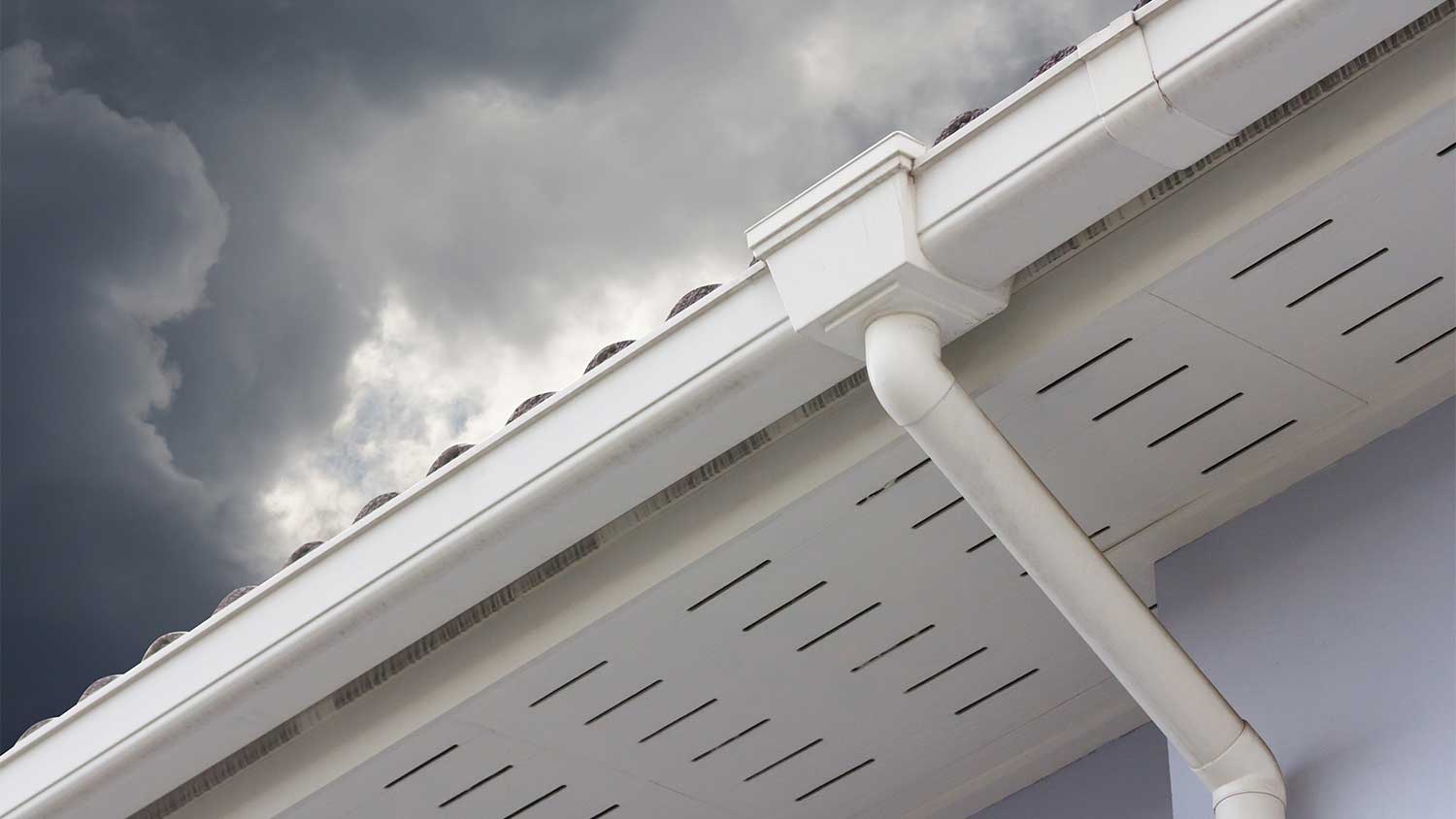How to Choose the Right Gutter Gauge for Your Home
Whether you opt for thick or thin gutter gauges, don't neglect this essential part of your home drainage system


Gutters are made with several different materials and come in various levels of thickness, known as gauge.
Gauge is measured in thousandths of an inch for aluminum gutters and in whole numbers for steel and copper.
Pros usually work with thick gauge gutters, though you can find lower-gauge aluminum gutters in home improvement stores.
When managing drainage and protecting your home from water damage, your gutters are usually out of sight and out of mind. Your home’s gutters and downspouts make up the drainage system responsible for channeling rainwater and melted snow away from your roof and toward parts of your yard with good drainage.
If your home doesn’t have gutters, or if your gutters haven’t been cleaned out and maintained properly, the roof can accumulate leaves and debris. Without clear gutters, one major storm can damage your home, including water infiltration, rusting, and a weakened foundation. Over time, the cost and extent of the necessary repairs can increase dramatically, or you’ll have to replace the gutters altogether. To keep your drainage system in fighting condition, let’s take a look at how to choose the best gutter gauges for your home.
Measuring Your Gutter Gauges by Material

The thickness of gutter material is measured by its gauge metal. Gauge is measured in thousandths of an inch for aluminum gutters and whole numbers for steel and copper. With whole-number gauges, the higher the number, the thinner the piece of metal.
| Gutter Material Type | Typical Gauge Range |
|---|---|
| Steel | 24–30 |
| Copper | 16–24 |
| Aluminum | 0.019–0.025 |
Steel Gutter Gauges
For steel gutters, which typically come in gauges from 24- to 30-gauge thicknesses, the most commonly installed gauge is a 26-gauge. A 24-gauge will be sturdier and prove more resistant to heavy loads. Downspouts are more commonly available in 26- or 28-gauge. Even with thicker steel gauges, the gutters may rust through within 10 to 15 years unless they’re well-protected with the appropriate rust-proofing paint.
Copper Gutter Gauges
Copper gutter fittings are known for their rich color and long-lasting abilities. Copper gauges range from 16 to 24, with 20-gauge thicknesses being the most common. However, 16-gauge copper is often used in homes that have steep roofs or are located in areas that experience heavy snow and ice.
On the downside, that lovely bright color will evolve over time to the familiar green patina of aged copper. Over time, that discoloration can become uneven unless it’s treated ahead of time with chemical pre-weathering agents.
Aluminum Gutter Gauges
For aluminum gutters, thickness or gauge is measured in thousandths of an inch. Aluminum gutter fittings that are available in most home improvement stores tend to be quite thin. In many cases, the available stock ranges from a lightweight 0.019-gauge, which is susceptible to warping or even collapsing under accumulated snow, to a slightly thicker 0.025-gauge, which can also buckle under heavy rainfall. Thinner gauge gutters also tend to need to be replaced more quickly than thicker ones, which usually last longer.
In contrast, contractors use an industry standard of either 0.027- or 0.032-gauge aluminum when installing gutter systems. Both of these thicknesses will hold up longer and better than thinner gauges under the stresses of extreme weather and time.
Types of Gutters and Downspouts

When considering gutter gauges, it helps to understand how gutters and downspouts work. Gutters run horizontally around your home’s roof, while downspouts run vertically and send the water runoff to the ground for drainage.
Gutters and downspouts are typically made of one of five commonly used materials, each with different pricing (usually compared on a linear foot basis). It’s important to use the correct size gutters and downspouts for your roofing system to keep them working effectively.
Vinyl
Vinyl is easy to cut to fit, and it will not corrode or rust. However, it can become brittle in very cold temperatures. Vinyl gutters and downspouts cost about $1 to $2 per linear foot.
Aluminum
One of the top materials for residential gutters, aluminum gutters generally cost around $2 to $3 per linear foot and $4 to $6 per linear foot to install.
Galvanized Steel
Galvanized steel is one of the sturdiest materials for gutters and downspouts. However, it is subject to rust. Additionally, with prices averaging $4 to $6 per linear foot, it can increase your overall project costs.
Copper
Many homeowners find copper gutters and downspouts to be an attractive option, especially for older homes. They are rust-proof and don’t need painting, but they tend to cost substantially more at around $15 to $25 per linear foot. Copper is also less common than the other materials, at least in most single-family homes, due to the average cost.
Stainless Steel
Stainless steel gutters and downspouts will maintain their sheen for many years, but they are more expensive than other options, up to $20 per linear foot.
Zinc
The price per linear foot for gutter installation cost using zinc gutters is between $15 and $30. While pricier than aluminum, zinc can double the life span of aluminum to last 50 years. Zinc can also be a better high-end option than copper for homeowners looking for gutters that are available in multiple colors.














